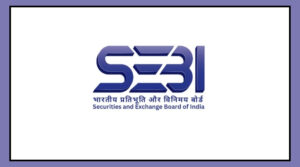E-invoicing, or electronic invoicing, is an essential system under GST. It requires businesses to upload all business-to-business (B2B) invoices electronically and have them authenticated through the Invoice Registration Portal (IRP).
The IRP assigns a unique Invoice Registration Number (IRN) to each invoice, helping reduce the risk of fraud.
This system was introduced to simplify tax compliance, increase transparency, and prevent tax evasion by enabling real-time reporting of invoices.
Currently, businesses with an annual turnover of over Rs 5 crore must use e-invoicing for B2B transactions.
However, from April 1, 2025, GST-registered businesses with an annual turnover of more than Rs 10 lakh will also need to follow this rule.
They must upload their e-invoices on the IRP within 30 days of issuance. This update is part of the government’s efforts to improve timely reporting, reduce errors, and streamline input tax credit (ITC) claims.
Who Will Be Affected?
Previously, this rule applied only to businesses with an annual turnover exceeding Rs 100 crore.
Due to the reduction in the turnover limit, many more businesses are now subject to this rule.
They will need to adopt a structured and timely invoicing process. Under the new rule, all invoices, credit notes, and debit notes must be uploaded within 30 days of issuance.
What Will Be the Impact on Businesses?
With this update, businesses must strictly adhere to the new deadlines for uploading e-invoices.
Any delays or failure to comply can lead to several operational and financial challenges:
Working Capital Issues for Purchasers: Purchasers depend on timely uploaded invoices to claim ITC. If suppliers fail to upload invoices on time, their customers cannot claim the ITC, leading to cash flow problems. This can impact the working capital cycle, especially for businesses with high-value transactions.
Rejection of Late Invoices: If any invoice is not uploaded within the 30-day window, the IRP will automatically reject it, preventing the tax credit from being claimed.
Increased Compliance Burden: Businesses will need to upgrade their invoicing systems and train their staff to ensure invoices are uploaded on time.
Non-compliance may result in penalties and issues with tax filing.
Steps Businesses Must Take
To ensure smooth implementation of this rule, businesses need to take the following actions:
Upgrade Billing Software: Businesses must update their invoicing systems to enable real-time generation and uploading of invoices.
Establish Internal Compliance Checks: Assign a dedicated team to monitor invoice uploads and ensure deadlines are met.
Educate Suppliers and Customers: As delays in uploads affect the entire supply chain, businesses must inform their stakeholders about the importance of timely uploading of invoices and debit/credit notes.

























